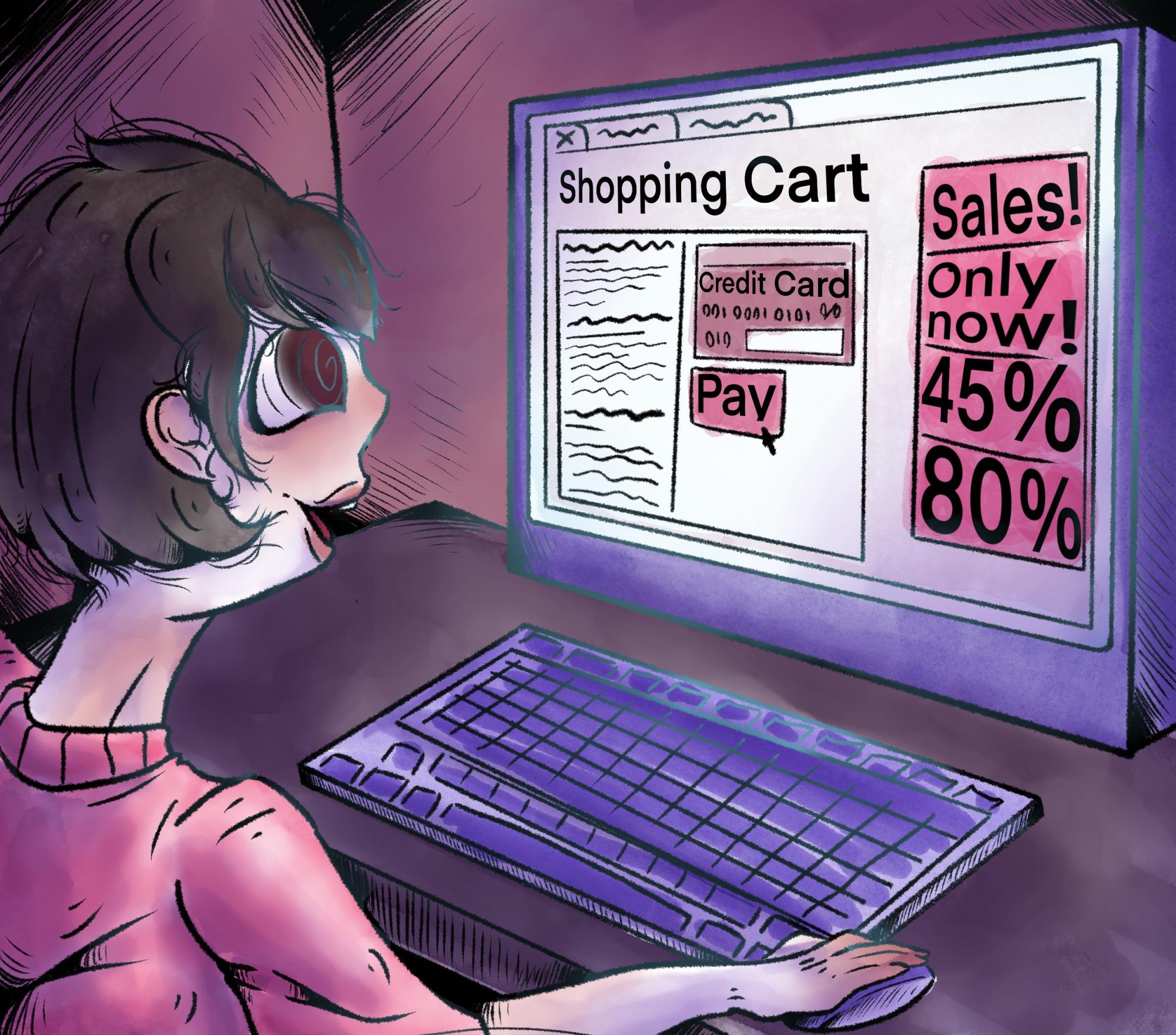In the U.S alone, Amazon sells about 8,600 goods per minute. Every day, of every year. And Amazon is just one of many online shopping platforms selling in the US, an industry that is estimated to make over $1 trillion each year.
Online shopping has reinvented retail, offering convenience and almost anything we could ask for at our fingertips. However this great invention has led to some unintended consequences, most notably leading people to buy things they don’t need, or worse, can’t afford.
While online shopping is used by everyone, companies are targeting mostly young people. Consumers ages 25 and under are the easiest targets because they’re always on social media. According to high school freshman Reshma Barnes, the constant online exposure makes it difficult to resist.
“Yeah I’d say I am definitely addicted to online shopping,” Barnes said. “Once I open the app there’s so much I feel like I wanna buy everything. It’s like a trap.”
Barnes explained that she’s gotten in trouble with her mom for spending too much on a purchase, and she admitted that many of the items she buys end up never being used. Many young people have the same struggle as Reshma. As a whole the younger generation has adapted a wasteful approach to online shopping ordering things they may have no use for.
Young people aren’t the only ones who need to be careful with cyber purchases. For adults, too, it’s easy to get trapped in the online shopping web and spend money you don’t have. And consumer debt is piling up.
Programs like Afterpay contribute to the rising problem of online overspending. The concept of the afterpay program is that you can spread out your payment into 4 installments over the course of six weeks. The problem is If you can’t make one of the payments on time, Afterpay charges a $8 late fee which could come to be as much as 25% of your order’s cost if you continue to skip payments.
More and more Americans, it seems, are adapting “buy now, pay later” approach. According to CNBC, Americans are racking up more fantom debt than ever before as a result of “burying” themselves in “low monthly payments.”
In addition to spending blindness from consumers, companies have plenty of psychological tricks and marketing strategies that encourage buyers to spend more money. If you have ever seen phrases like “Hurry only 3 left in stock!” or “Flash Sale ends in 2 hours!” you should probably know they are designed to get you to spend more money. It gives you a sense of urgency to act fast and buy an item, even when you may not have even been interested originally.
I think it’s clear to all of us (me, included) that we need to rethink our culture around online shopping. The cycle of impulse purchasing is hurting our finances, mental well-being, and the planet, and maybe the next time you click, start by asking yourself a few mindful questions: “Do I really need this? Should I wait a day to think it over? Should I set a budget for non-essential spending? Those “last chance” sales can wait– they always do.


